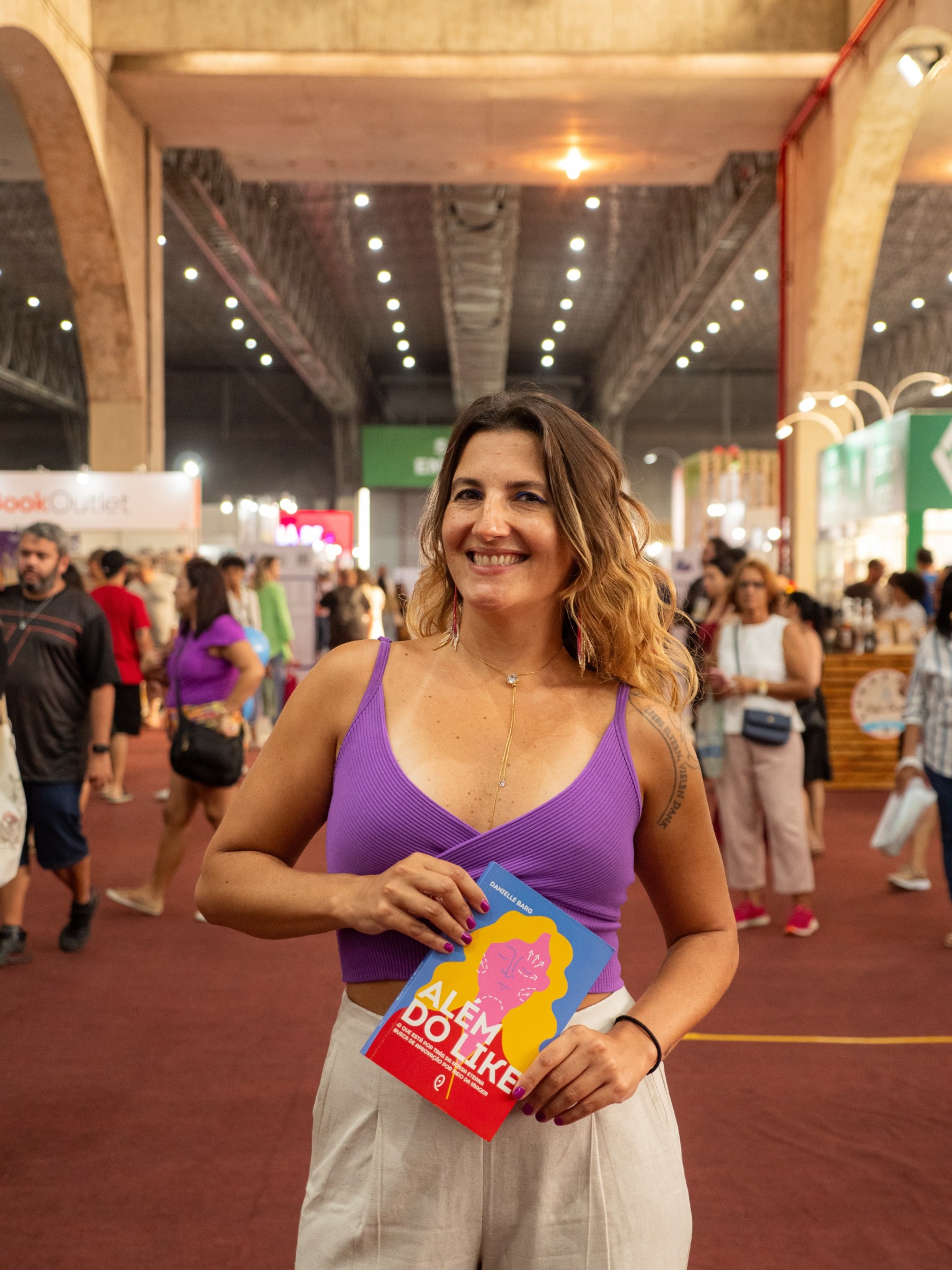We recently connected with Danielle Barg and have shared our conversation below.
Danielle, looking forward to hearing all of your stories today. Let’s start with the story of your mission. What should we know?
I believe a meaningful mission is about how much it inspires people to change their surroundings for the better. My mission is to try to make the world a better place—that’s why I chose to study Journalism in college. Social media has put people on autopilot, making them act without much reflection. I believe my way of contributing to a more inclusive society is by creating content that encourages people to pause and think. We are all “influencers” in real life—but not everyone has realized that.
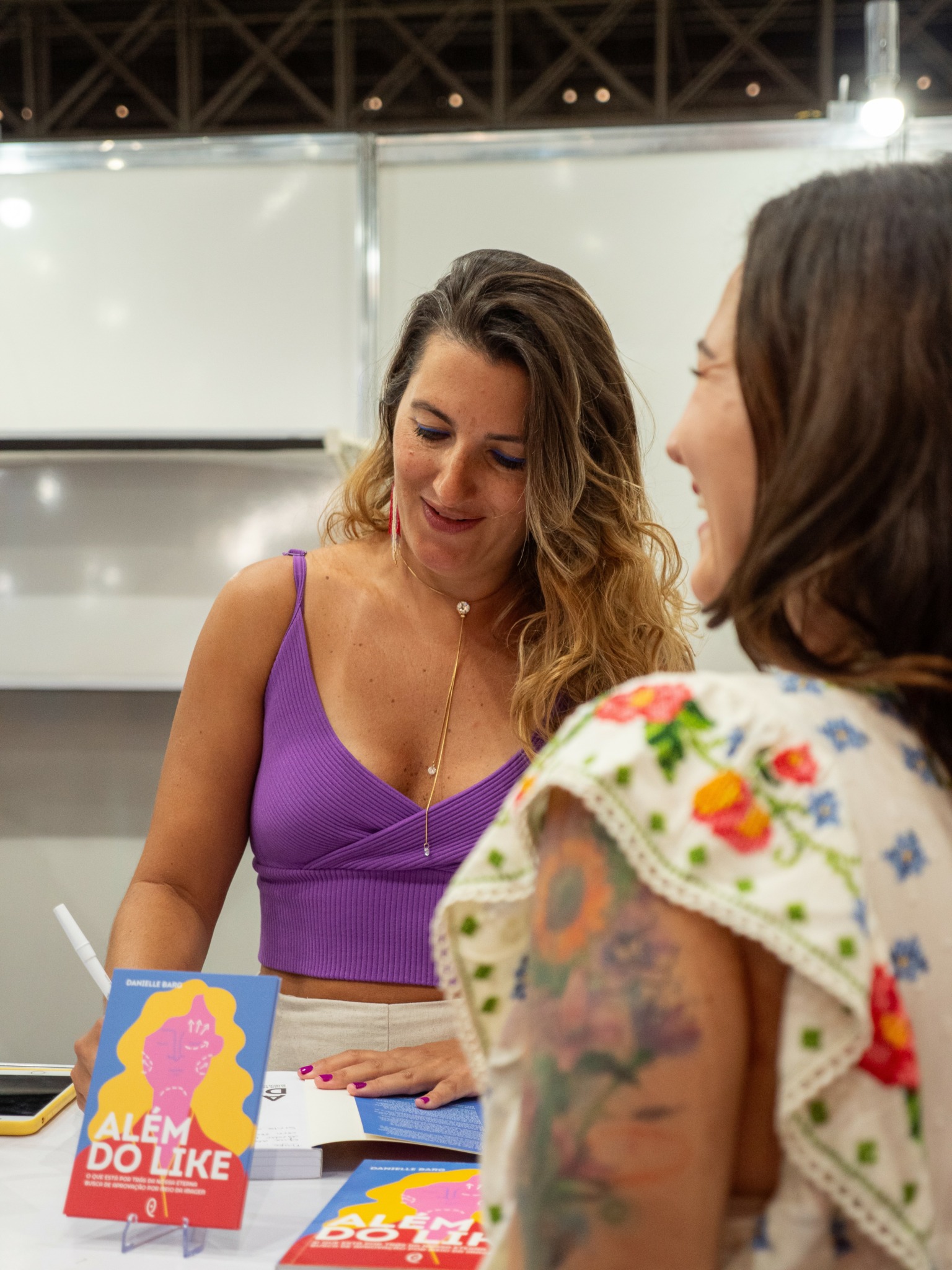
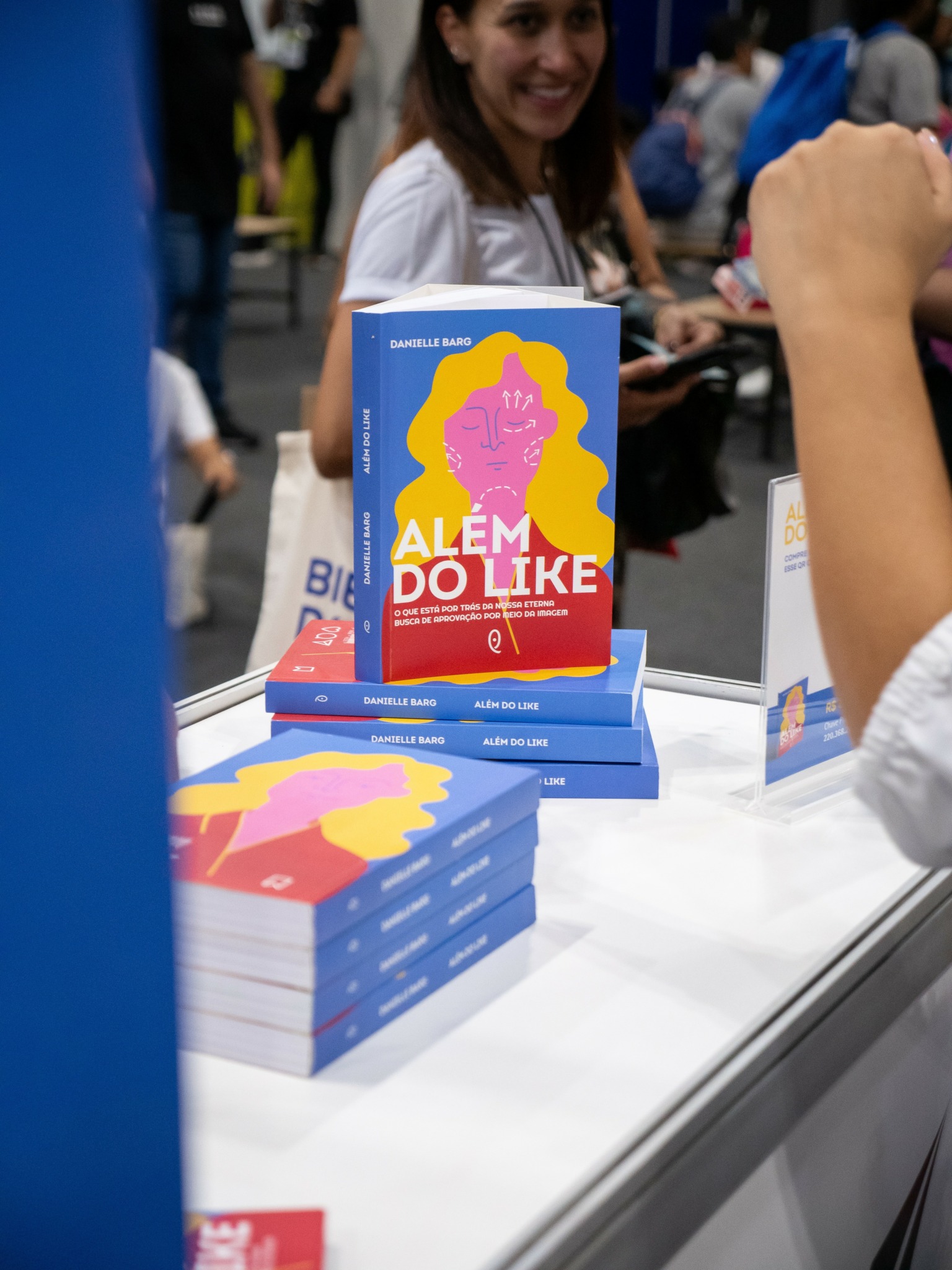
Danielle, love having you share your insights with us. Before we ask you more questions, maybe you can take a moment to introduce yourself to our readers who might have missed our earlier conversations?
I’m the author of Além do Like (in Portuguese, which means Beyond Like, referring to social media likes). It’s a non-fiction book about aesthetic pressure and beauty standards in the social media era.
To explain how this book came to life, I need to go back in my professional timeline. I started writing about eating behavior in 2014, when I was working in the Life & Style section of a significant Brazilian news website. I covered topics like health, diet, nutrition, fashion, and beauty. During fashion weeks and beauty brand events, I interviewed many famous women. Some topics were always at the top of my list: diet, workout routines, and “beauty secrets.”
I began to notice the enormous attention given to women’s appearance in the media and how diet culture had reshaped how we eat, behave, and relate to others, the world, and our self-esteem. Among women, in particular, the fear of gaining weight plays a significant role in many daily decisions. At the same time, image-focused digital platforms—such as Instagram and TikTok—grew exponentially over the past decade.
In short, these subjects were on my radar—not just in my work but also in my personal interests.
During the pandemic, I went through a difficult time. Beyond the hardship of lockdown itself, I was thousands of miles away from my family—I’m Brazilian and live in San Francisco, California. I wasn’t allowed to visit them due to COVID-19 restrictions and because I was waiting for my Green Card. In addition to that, the visa I held at the time didn’t allow me to work.
So I used this period—almost three years—to study these topics more deeply. I conducted extensive research, interviewed dozens of people, and finally decided to write my book. Looking back, I’m proud I used this time wisely—despite all the fear and uncertainty.
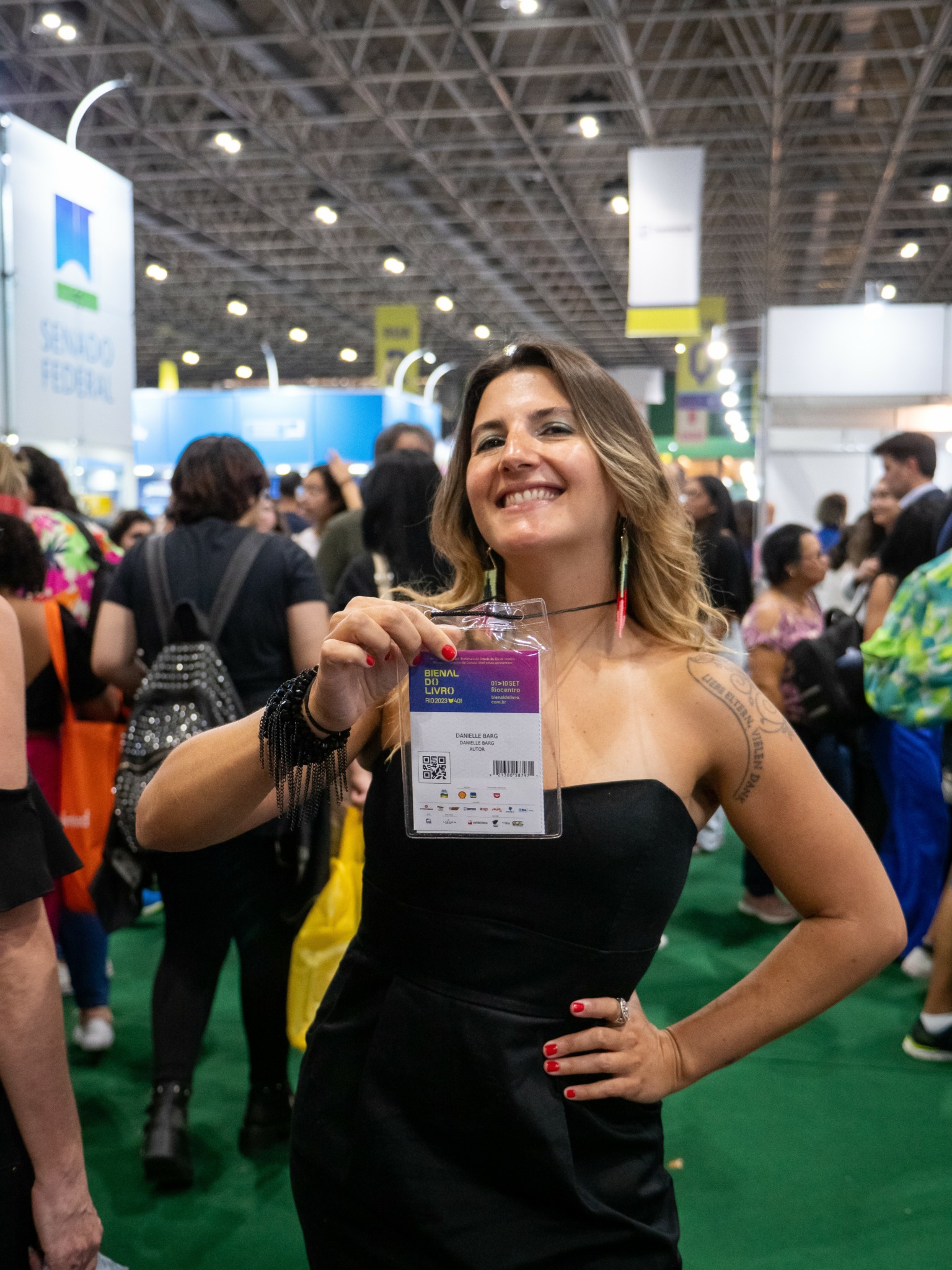
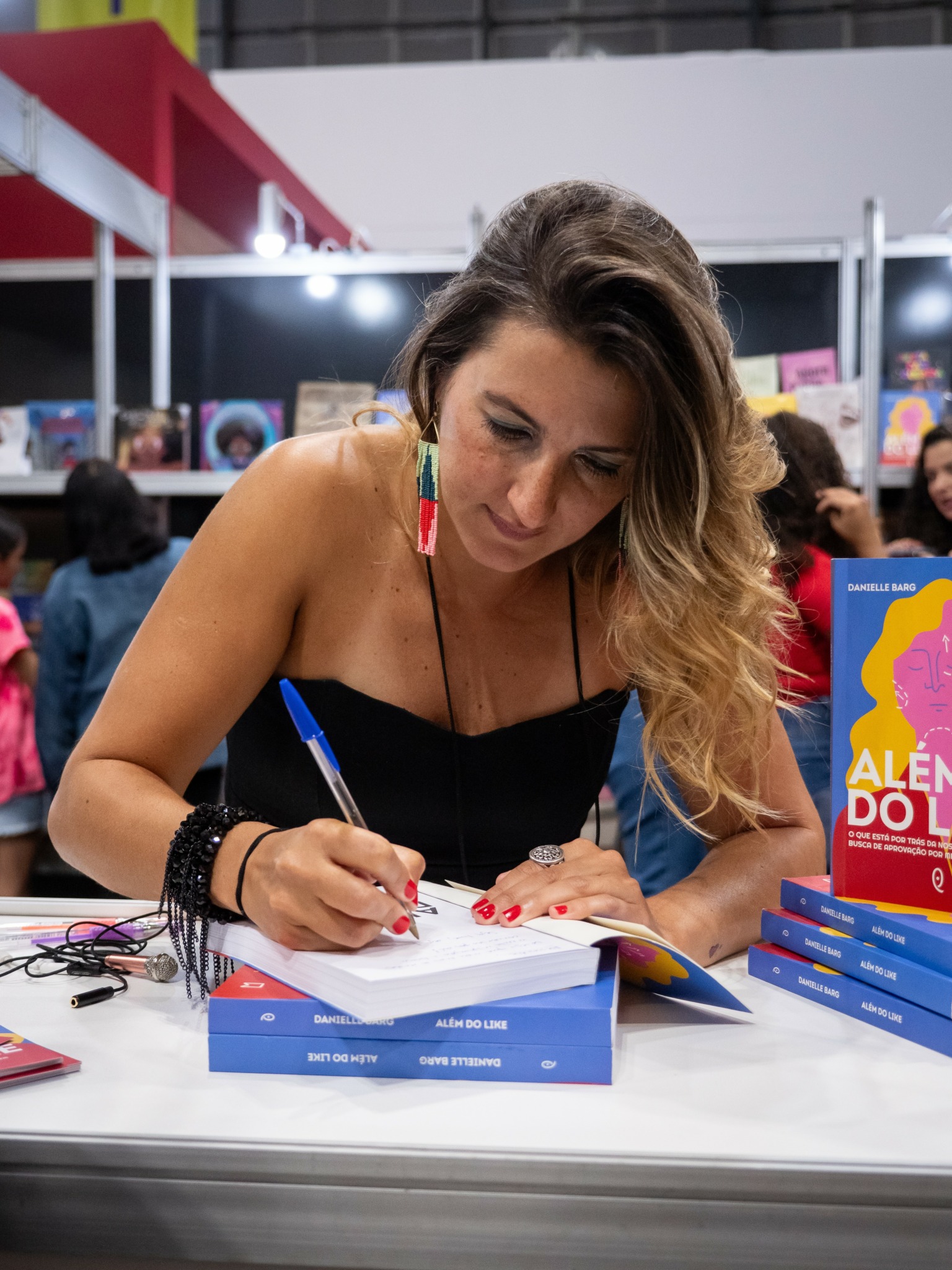
Can you tell us about a time you’ve had to pivot?
The pivotal moment that truly changed my professional life was when I decided to write my book. I had always dreamed of writing a non-fiction book, but I never had the time to dedicate myself to the research this genre requires.
With the pandemic and the inability to work, I realized I should use this time to invest in something I see as a purpose in my life. Time is a privilege, and I quickly understood I had a great opportunity.
Telling the story in hindsight makes everything seem easier than it really was, but it wasn’t. I had to convince myself every day that this project was worth pursuing. I had so many doubts. Writing a book is a very lonely process: you don’t have a boss or a mentor telling you which path to take. Of course, I received lots of support from my family, close friends, and, especially, from my husband, who followed my struggles every day.
I faced daily dilemmas like: “Should I use this time to specialize in my field?” or “Should I prepare to change careers radically?”
I had no guarantees. I didn’t know if any publisher would be interested in my book or if I’d be bold enough to self-publish. The only certainty I had was that I had done significant research, conducted many insightful interviews, and had valuable material in my hands. Holding onto that, I kept going. I spent an entire year working alone at home, but with office discipline. I started writing early, took a lunch break, and resumed writing until the end of the day. I spent the whole day on the computer: writing, researching, interviewing people, reading, and watching documentaries.
When I finished writing the book, a new challenge began: I started knocking on the doors of Brazilian publishers to see if they were interested in publishing it. I didn’t know anyone in the publishing industry, which made things a bit harder. Despite working as a journalist for so many years, I realized that the press and the publishing industry are distinct fields, and I had no one to turn to.
After many unanswered emails and a few rejections, a small publisher opened its doors to me. A year later, I published my book in Brazil.
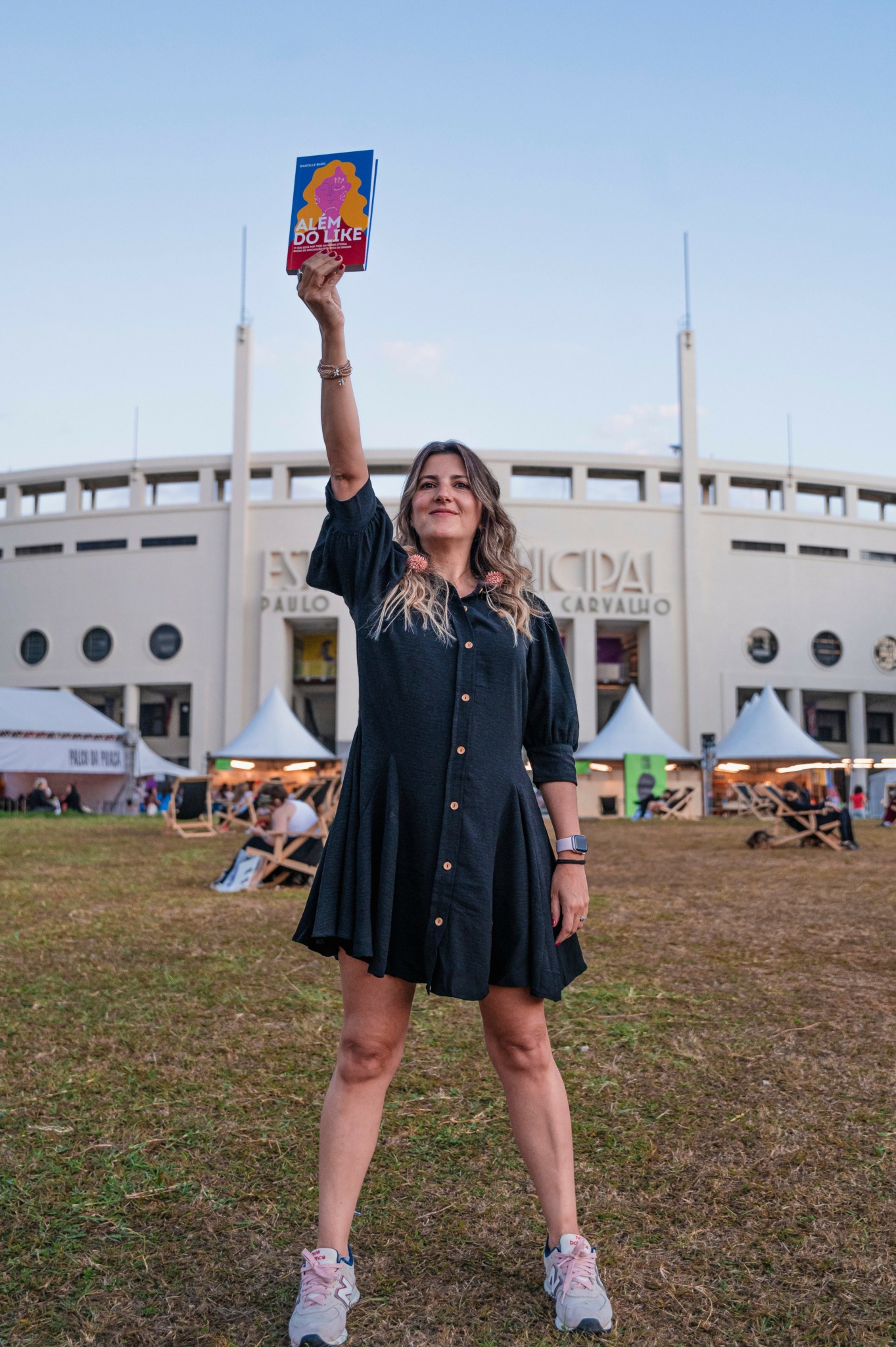
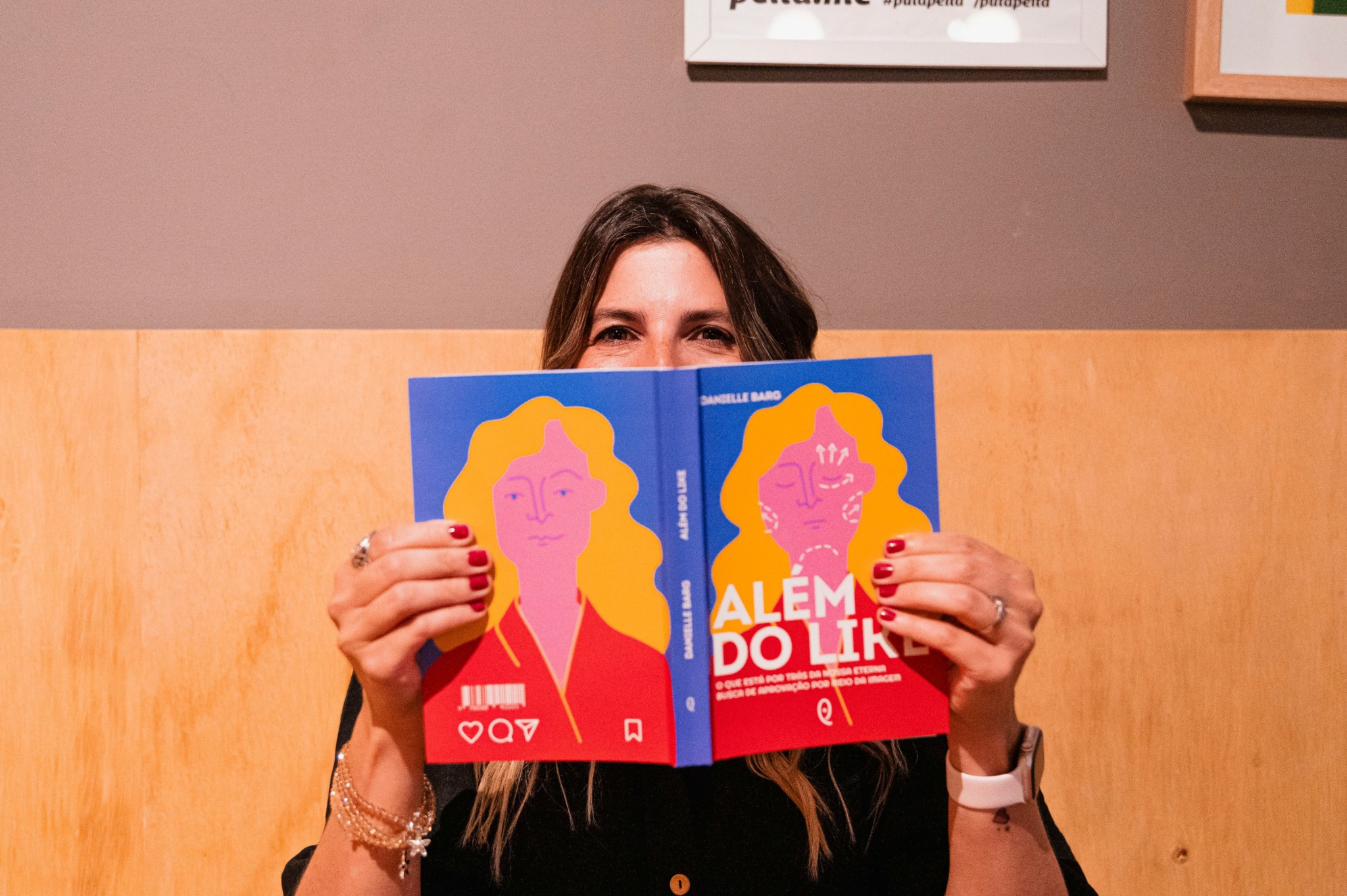
Do you think there is something that non-creatives might struggle to understand about your journey as a creative? Maybe you can shed some light?
One of the most important lessons I learned on this journey was letting go of my beliefs about my profession and field. For a long time, I believed I had to fight to stay in mainstream media to be considered a “successful professional.” But I realized that wasn’t what I truly wanted. Writing and researching the topics I study wouldn’t be possible within a traditional job. In short, I could only dedicate myself to my purpose if I was willing to take risks and go out on my own.
On the other hand, making a living from writing isn’t easy, mainly because it doesn’t provide immediate financial returns—you need to take on other projects to create different income streams. One of these paths is public speaking, which allows me to share my book’s message with a broader audience, including people who might not be reached solely through reading. So I decided to give it a try, and I enjoyed it. I’ve given talks in Brazil and saw firsthand how relevant my book’s themes are. I plan to continue working in this area as well.
Even though my work on the book was progressing, I knew I needed a job to ensure a steady income. My main concern at that point was finding something that offered flexibility to still attend book-related events.
A traditional journalism job would make that impossible—I worked in the industry for over ten years, so I know how demanding the hours are. Besides that, working full-time as a journalist is mentally exhausting. I was afraid it would take my focus away from my book.
That’s when I decided to look for a part-time job in a different field: catering. I’ve always had a close relationship with food, I love cooking (I come from a family where the women cook), and I’ve always been fascinated by everything related to food. At first, I resisted the idea because I thought it was too far from my expertise. But once I embraced it, I found a job quickly.
Now, I have a part-time job that provides a stable income and allows me the flexibility I need. My routine is split: part of the day, I work in catering, and the other half, I research, write, study, and create content related to my book and speaking engagements.
I believe this is a valuable tip for people working in creative fields: combining a physical job with an intellectual one can be a good idea. At least for me, it works. When working in catering, my effort is physical, but my mind is free—it gets a break from my research topics. And when I’m working on my book, my body rests while my mind is fully engaged. One job recharges the other.
At first, I struggled to accept this format—I felt like my career path was too unstructured and, once again, that I wasn’t fulfilling the role expected of a journalist.
But in the end, I learned to let go of the idea that we have to stick to just one field. A Brazilian psychologist and coach told me something that stuck with me: I define my own field. I don’t have to follow what the industry dictates as “my area”—I can shape it myself. And for me, that includes human behavior, eating behavior, food, communication, and people.
Ultimately, one area complements the other: working in catering at some of the biggest companies in San Francisco allows me to do something I love—observe people. And that enriches me as a writer.
I can’t say I’ve achieved everything I want with my book yet. As I mentioned, being a writer is not an easy choice. But I feel like I’m building a solid, consistent path for my book’s growth, step by step. Thanks to the flexibility of my catering job, I can travel to Brazil twice a year to participate in talks and events like book clubs, book fairs, and literary festivals—key moments in the Brazilian publishing market.
I also have a proposal for a second edition with a more prominent publisher, including updates and the possibility of translating the book into English.
Nothing happened overnight, and this process has taught me patience and resilience. But every time I sell a book or receive a message from someone saying my book made them reflect deeply, I feel my mission being fulfilled. My journey hasn’t been linear, but all the unexpected twists make it even more enjoyable. I would do it all over again!
Contact Info:
- Website: https://www.danibarg.com/
- Instagram: https://www.instagram.com/daniellebarg/
- Facebook: https://www.facebook.com/danielle.barg
- Linkedin: https://www.linkedin.com/in/danibarg/
- Twitter: https://x.com/danibarg
- Youtube: https://www.youtube.com/@alemdolike2483
- Other: https://danibarg.journoportfolio.com/
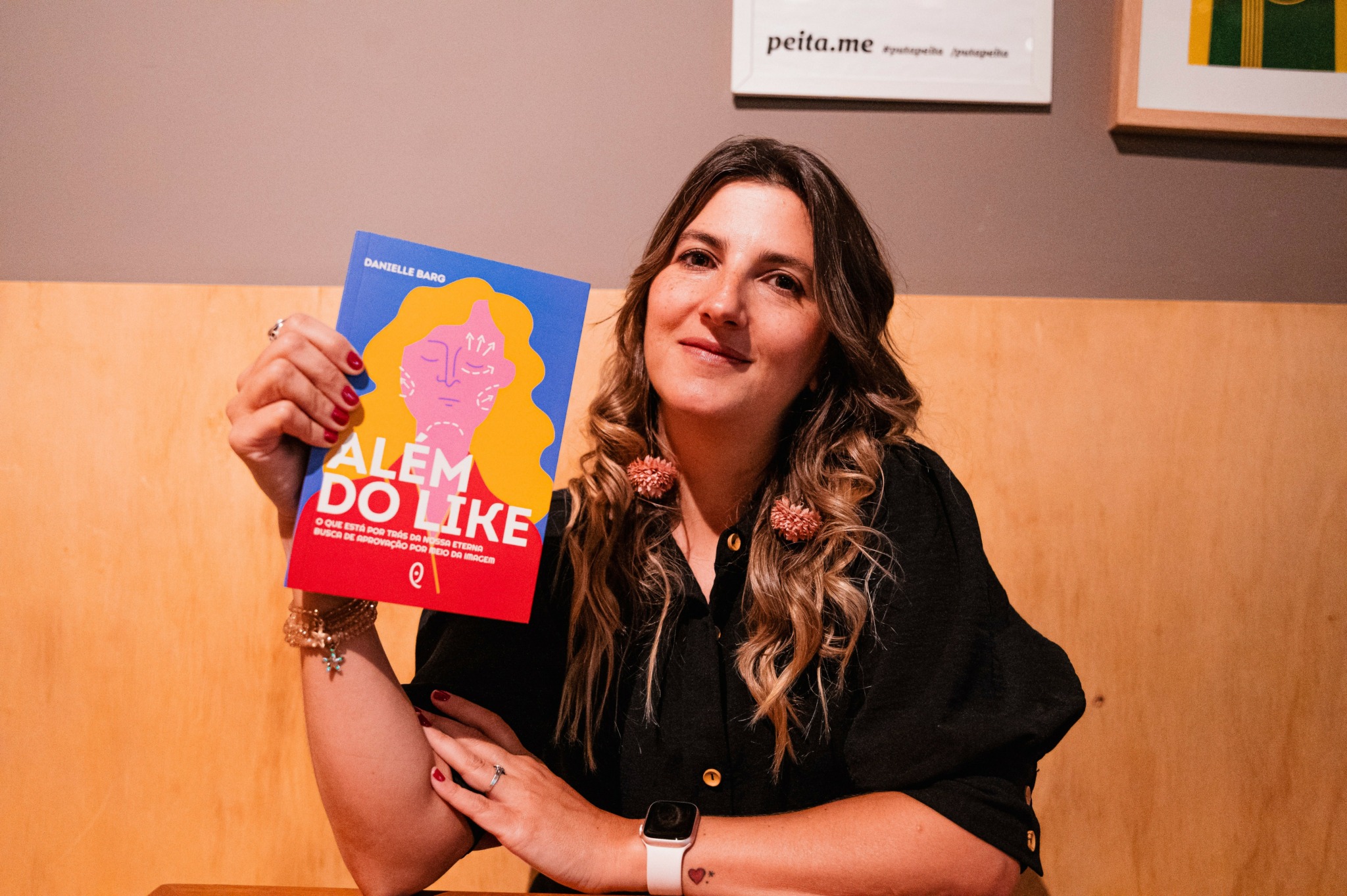
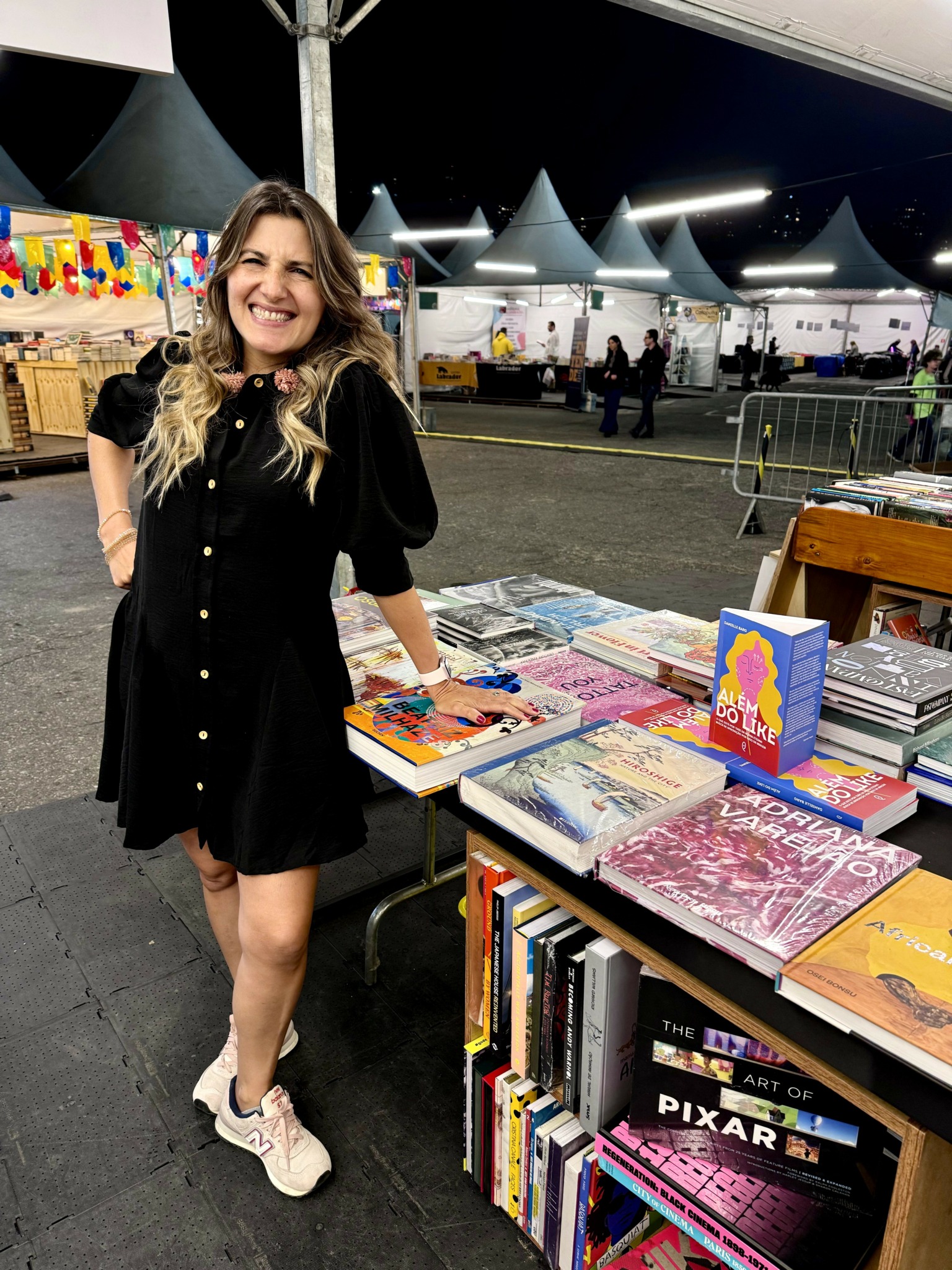
Image Credits
Bruna Araújo
Kayo Oliveira


